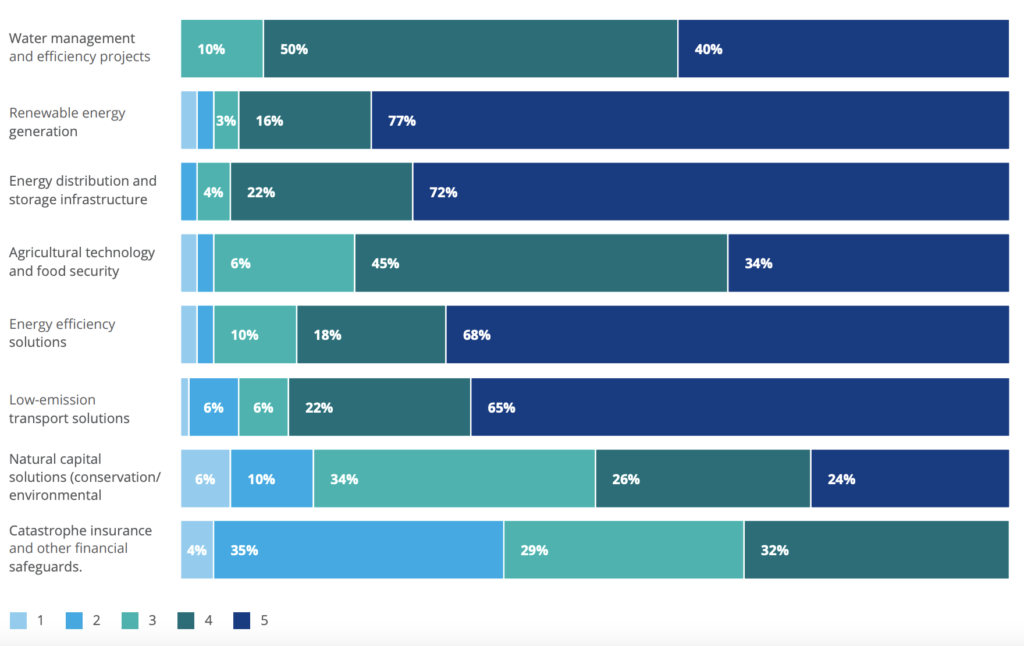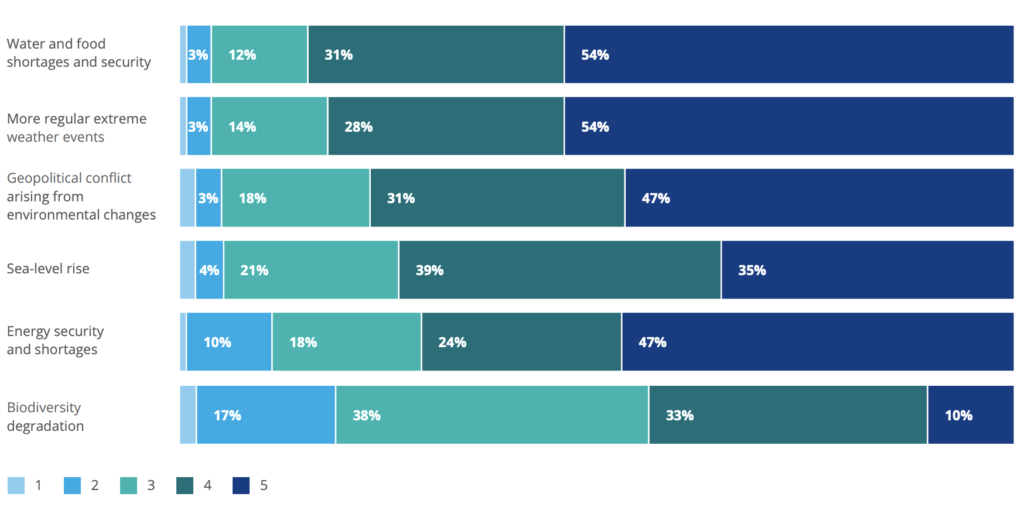Sovereign wealth funds invested close to $2.3 billion in businesses, technologies, and other projects aimed at mitigating the effects of climate change in 2020, more than doubling the previous year’s funding, new research says.
But state-linked investors are committing a relatively small proportion of their capital to agrifood investments, instead favoring areas relating to renewable energy and low-emissions transport.
The joint report from the International Forum of Sovereign Wealth Funds (IFSWF) and One Planet Sovereign Wealth Funds (OPSWF) found that just 34% of state funds view agricultural technology and food security as presenting the best investment opportunities in the low-carbon economy.
Only natural capital solutions including conservation and environmental protection efforts (24%), and catastrophe insurance and other financial safeguards (0%), were ranked lower.

Survey respondents — which included most of the world’s sovereign wealth funds — were asked give eight subsectors a ranking of one to five based on how they viewed each from an investability perspective, with a score of one indicating the least promise and five the most.
Renewable energy generation was widely rated as the best investment opportunity, with 77% of respondents scoring it a five. Energy distribution and storage infrastructure (72%), energy efficiency solutions (68%), and low-emission transport solutions (65%) were the next most popular destinations for sovereign wealth fund climate capital.
Despite the relatively low score for agrifoodtech opportunities, sovereign wealth funds nonetheless rated food and water shortages and security as the most pressing issue presented by climate change – with 54% ranking it top alongside extreme weather events in terms of having the most severe physical effects.

Please rate 1 to 5 where 5 is the greatest.’ Image credit: IFSWF-OPSWF Climate Change Survey 2020
The report said the apparent disconnect between state funds’ recognition of climate-related food security hazards, and their relative hesitancy to invest in mitigating them, suggests that they are “more focused on the low-carbon transition than on supporting physical risk adaptation.”
“Many sovereign wealth funds are focused on finding opportunities in climate solutions such as renewable energy generation, energy efficiency projects, and low-emission transport that have a present-day investment case and return profile. Approximately three-quarters of respondents that pursued opportunities related to the low-carbon economy thought these sectors would yield the best returns over time,” the report says.
“The survey also revealed that sovereign wealth funds are currently focusing their climate change efforts on real assets, such as property and infrastructure, and privately held companies, while multi-asset [and] whole portfolio approaches are still rare.”
Nevertheless, some sovereign wealth funds are making big bets on agrifoodtech and allied sectors. According to IFSWF, direct investments in these areas have more than tripled from $92 million in 2018 to $303 million in 2020.
Of that 2020 total, 80% went to early-stage or growth rounds – indicating that sovereign wealth funds “are fast developing the expertise to take advantage of […] opportunities, particularly in the agritech sector,” the report states.
Notable recent agrifoodtech fundings involving sovereign wealth funds include Apeel Sciences‘ $250 million Series A round in May 2020, which was led by Singapore’s GIC.
US-based Apeel has developed an edible, plant-based coating for fruits and vegetables that can extend their shelf life by as much as three times without the need for refrigeration.
Fellow Singaporean state outfit Temasek claims to have made $5 billion in agrifood-related investments over the past five years. Its portfolio in the sector ranges from deep-tech ag startups like Pivot Bio and Tropic Biosciences, to the new wave of alt-protein brands like Impossible Foods and Perfect Day – as well as established global agribusinesses such as Bayer and Olam.
In March this year, the Qatar Investment Authority led a $200 million investment into US foodtech startup Eat Just, which became the first company in the world to obtain regulatory clearance for a cell-cultured meat product in November 2020.
The UAE’s Abu Dhabi Investment Office and Kuwait’s Wafra International Investment have both backed indoor ‘smart farming’ player Pure Harvest with funding in recent years.
Comment? News tip? Story idea? Email me at [email protected] or find me on LinkedIn and Twitter




